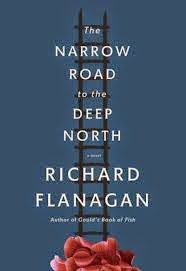My love of movies is tied up with my love of books. Here is the collaborative blog post I co-wrote with my daughter, The Insatiable Word Eater (like mother, like daughter) for the Oscar awards on Sunday. I am linking to her blog instead of re-posting here. Overall, on all the awards given on Sunday evening, I was 17 for 24 in correct predictions. In our posted predictions, we were spilt. I correctly choose Birdman for Best Picture, while Riley stuck with our personal favorite Boyhood. Riley corrected selected Eddie Redmayne for Best Actor, while I missed on Michael Keaton. We both were right in our predictions for Best Supporting Actor, Best Actress and Best Supporting Actress. On our last posted category - Best Original Screenplay, since we are word lovers, Riley nailed it by selecting Birdman. We had a fun evening, as always, but missed the absent sister who was studying for mid-terms.
It was a "bookish" Oscars with several adaptations and original screenplays up for awards. As Shelf Awareness pointed out yesterday, five of the eight best picture nominations were based on books or were book-related. I love movies and seeing the way my favorite books come to life (sometimes in a disappointing way) on the big screen. Read my daughter's blog post for all our predictions.
Dear Readers, I don't even know how to tell you about The Narrow Road to the Deep North by Richard Flanagan. I'm still blown away, three days after completing this 2014 Man Booker Prize Winner. I haven't heard much talk about this book, so I don't even know where to begin. It's harrowing to read about the construction of the Thai-Burma Railway, or Death Railway in 1942-1943. Slave laborers, including Asians and Allied prisoners of war, were forced to build this railway in brutal conditions. More than 12,000 Allied prisoners died in the effort. See the famous film Bridge Over the River Kwai (1957) for a slightly different view of this horrific chapter in history. The Narrow Road is about a group of Australian POWs and the Australian surgeon Dorrigo Evans who was forced to care for the sick and dying of this band of slave laborers in the worst conditions possible.
The novelist Richard Flanagan, a native Australian, has accomplished a feat comparable to the building of that 258-mile railway as he weaves a story of love and war and lost dreams. Flanagan's own father was a POW who survived the building of the Death Railway and actually died the day Flanagan finished the novel. This tribute to his native Australians who survived this horrible chapter in history is astounding in its description of the human condition. He intersects the stories of the men on the railway and how the survivors' lives turned out after their return to home and family with those of their captors, the seemingly evil Japanese officers, also during and after the railway construction. Many of the Japanese and Koreans slave drivers went through war crimes trials after WWII. Underlying the brutal scenes in the Asian jungle is the poignant love story of Dorrigo Evans and his uncle's wife. The title of the book comes from the title of a famous book by a 17th century Japanese haiku poet Basho, who said "every day is a journey and the journey itself home."
Like that quote, this book seems to follow a circular pattern with all the journeys becoming home. Dorrigo understands at the end …"the love story would go on forever and ever, world without end." In one beautiful statement near the beginning of the book, Flanagan talks about the feeling of communion books bring. He said, "At such times, he had the sensation that there was only one book in the universe, and that all books were simply portals into this greater ongoing work - an inexhaustible, beautiful world that was not imaginary but the world as it truly was, a book without beginning or end." Life is a circle of beauty and horror like the ancient haiku by Issa quoted in the book,
In this world
we walk on the roof of hell
gazing at flowers.
The best books give us a glimpse into the meaning of life. This book is one of those. The chair of the judges of the Man Booker Prize, 2014, A.C. Grayling said, "Some years very good books win the Man Booker Prize, but this year a masterpiece has won it." Don't miss The Narrow Road to the Deep North.

